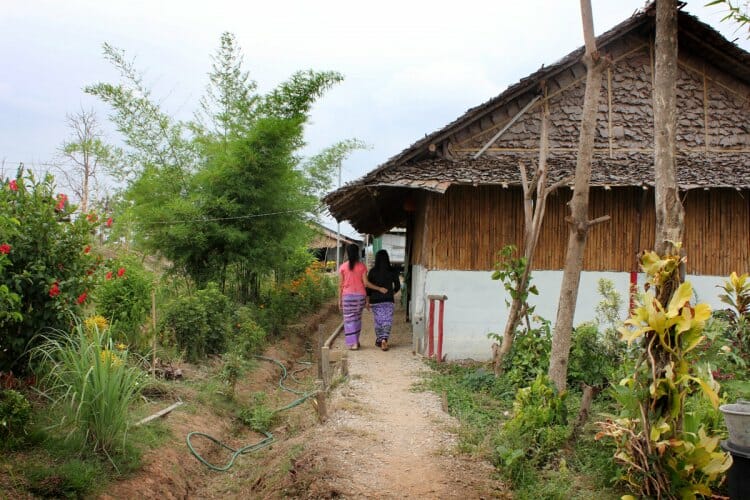The following post was written by Karl, a volunteer English teacher at the Health and Earth Rights Training (HEART) program in Mae Sot, Thailand, on the Burma border.
After arriving in Mae Sot, I found myself sitting in a small restaurant eating very spicy chicken and rice and feeling the most excited and grateful that I can remember. Soon I would be starting my volunteer position and I couldn’t wait. I wanted a real “immersion” experience in Burma’s culture and this is certainly what I was heading for. Little did I know what was in store…
My volunteer placement is at the HEART school, which stands for Health and Earth Rights Training. The school’s focus is on health education, human rights and the environment, but gender equality, woman’s rights and many other subjects are also part of the seven and a half month course.
There are 17 students, the majority in their early 20s and one in his late 30s. About half of the students have been living in refugee camps while most of the others come from various organizations based in and around Mae Sot and as far as Chiang Mai.
As part of learning English, the students write 10 pages every week in a journal about anything they choose. Most write about their families, friends, and people they have left behind. I read their journals every week to correct the grammar and it is a reminder to me of where the students have come from and what is important to them. The most consistent themes are a desire to make a difference in their home village and help the ethnic groups still living there. The students write about deforestation, health and human rights issues, and almost every other problem that is reported throughout Burma and in each student’s community.
One particular student’s story comes to mind. Like most, she is from a very poor family. Her parents had to leave the village to find work, and she was left at home as an 8-year-old to support herself and her 3 younger siblings. She describes the changing seasons in Burma dictating life for her and her family. “The rainy season was the worst because the roof was very old and we had no money to fix it. Sometimes money would not come from my parents and I had to ask other families for fruit and other food.” Talking with this student today, you would never imagine that she had come from such a background. She is the most talkative and bubbly personality in the class, always throwing around jokes and making others laugh.
Some of the students are already part of an organization committed to making a difference with ethnic communities, especially in Karen State. The students hope to increase their knowledge by attending the HEART school and to educate others in their villages. Their willingness to attend classes from 9 a.m. to 8:30 p.m., as well as cooking all meals and keeping the school clean, shows their passion and commitment to the goal of becoming leaders for their communities.
For myself, and I suspect for many people in the world, the concerns of my own comfort and level of safety have often outweighed deliberate action to do something to help ease the suffering of others. This isn’t a new concept or a new thought, of course, but one that I am consistently facing as I spend more time in Mae Sot and with the students at the HEART school and learn and am exposed to more. The saying, ”no one is free until everyone is free” is a thought that passes my mind often these days. It is experiences like these that challenge my very perception and idea of life.
As I settle into Mae Sot and my regular English classes at HEART (which have helped me realize that my own English is not as good as I thought!) the strong impact of what I have been learning about starts to pervade my psyche. As the students continue to tell me the stories of their lives with humor and a smile, concealing what they have really been through, I am becoming used to the familiar theme of suppression, violence and struggle. For them this is what they have grown up with and all they have known. I start to see how you just get used to a way of life and accept that this is the way things are, even though it’s wrong and doesn’t work… and how much courage it takes to fight for change.
I spoke to someone who has dedicated their life to this cause for the past 8 years. I asked her, is it hard to do that? Is it hard to give up your regular familiar western life? She said you need to be brave. Brave to go against what most of society says about how to have a fulfilling happy life. You need to be brave to give up security in your life and all the things we are told that will make us happy. You need to be brave to even ask yourself the question: is this the kind of life I want?
And so, with the help of the students and the challenge of their experiences, I am in a new place and asking myself new questions: am I just doing this to try to make myself happy by helping others? Am I naive about life? Am I brave? After my time here, will I just go back to my comfortable, easy life being another consumer? Is it in places like this that you get a sense of what life is about? A sense of purpose?
These are the questions I am left with and asking myself everyday.







